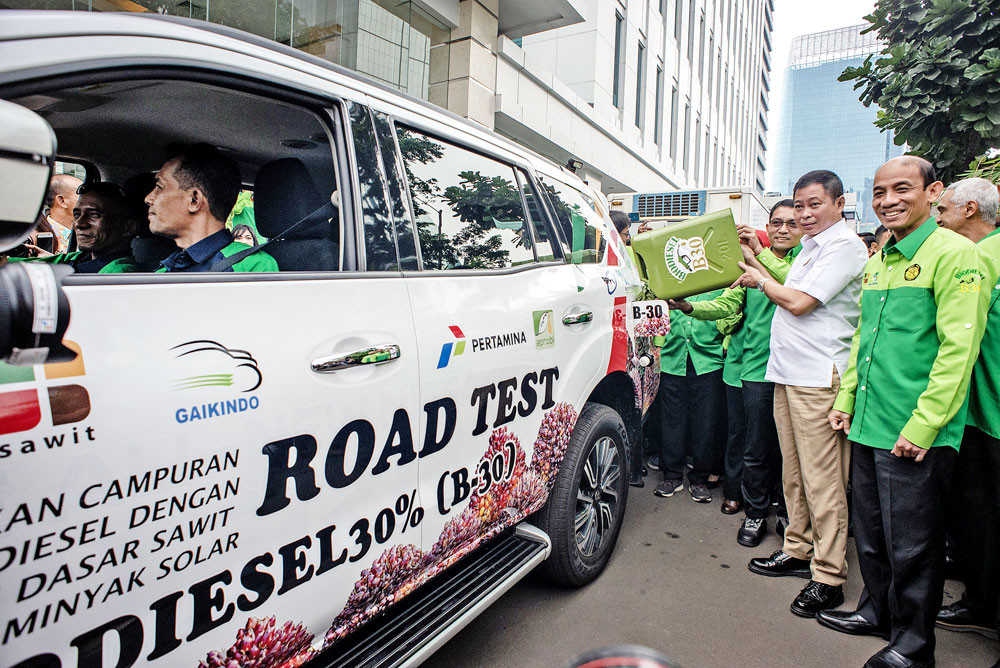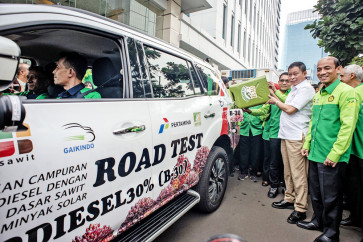Popular Reads
Top Results
Can't find what you're looking for?
View all search resultsPopular Reads
Top Results
Can't find what you're looking for?
View all search resultsPalm oil-based green fuel program unlikely to empower palm oil farmers: smallholders
The government’s “green fuel” program is expected to help boost the share of renewable energy in the country’s energy mix to 23 percent by 2024 from 8.55 percent in 2018 and lower fossil fuel use and crude oil imports. Domestic biofuel consumption is also expected to rise to 17.4 million kiloliters by 2024 from 6.9 million kiloliters in 2020.
Change text size
Gift Premium Articles
to Anyone
O
il palm farmers have raised doubts that the palm oil-based “green fuel” scheme laid out in the government's recent five-year plan will benefit them, taking past biodiesel developments as cautionary tales.
Palm Oil Smallholders Union (SPKS) secretary-general Mansuetus Darto said that the scheme could risk repeating mistakes of keeping farmers out of the supply chain just like previous biodiesel programs.
As an example, he said agribusiness giant Wilmar Group "did not involve" smallholders in producing its assigned 2.5 million liters of the 30-percent blended biodiesel (B30) quota. Instead, around 162 companies are supplying the crude palm oil (CPO) for the group’s B30 production.
"It will be really regrettable if we develop [...] the palm oil-based green fuel where only big corporations can benefit," said Mansuetus in Jakarta on Feb. 11, adding that farmers already struggled to make a profit amid price manipulations allegedly conducted by intermediate agents.
His skepticism about the scheme contrasts with the government's 2020-2024 medium-term development plan (RPJMN) that states that "palm oil-based fuel production will be increased by empowering smallholders" through the production of "green fuel", also known as bio-hydrocarbon fuel.
"Because the raw materials will come from independently run farmers, this vegetable oil-based biofuel development will also support the welfare of these farmers," Indonesian Oil Palm Estate Fund (BPDP-KS) president director Dono Boestami explained. The BPDP-KS is among other government institutions that will run the new program.
Responding to the union's concerns, Indonesian Biofuel Producers (Aprobi) chairman Master Parulian Tumanggor said that smallholders had contributed a “large enough” portion to make palm oil-based biofuels, although the industry group faced difficulty in distinguishing farmer-grown palm oil from corporation-produced palm oil as the products are identical.


















